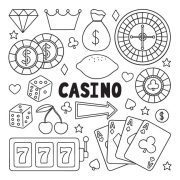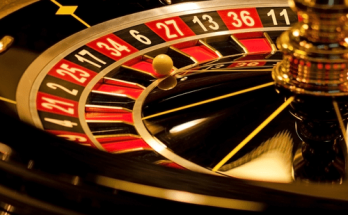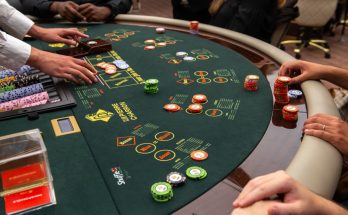For many people, life often involves stress, pain, anxiety, or emotional discomfort. Yet, interestingly, some individuals experience a unique phenomenon when playing online casino games at platforms like neon-54-casino.gr – a temporary state where “nothing hurts.” During these gambling sessions, emotional pain, worries, and anxieties seem to disappear, replaced by a comforting numbness and a sense of relief. This phenomenon is not just distraction or entertainment; it’s gambling as emotional anesthesia.
In this article, we’ll delve deeply into why and how gambling acts as an emotional anesthetic. We’ll explore psychological and neurological reasons behind gambling’s powerful ability to numb emotional pain, understand the risks of this behavior, and discuss healthier ways to manage emotional distress without relying solely on gambling.
Understanding Gambling as Emotional Anesthesia
Defining Emotional Anesthesia
Emotional anesthesia refers to the temporary suppression or numbing of negative emotions such as pain, anxiety, sadness, or loneliness through an activity – in this case, gambling. Players at casino often find that gambling temporarily suspends emotional distress, providing relief that traditional coping mechanisms fail to deliver.
How Gambling Offers Emotional Relief
Casino games offer continuous emotional stimulation, absorbing attention, and distracting from personal problems. This immersive experience creates an emotional barrier, temporarily blocking emotional pain and providing a sense of relief or numbness that resembles anesthesia.
Psychological Reasons Behind Gambling’s Pain-Relieving Effects
Escape from Emotional Pain and Reality
Life frequently presents emotional challenges – relationship troubles, financial stress, work anxiety, loneliness. Gambling at casino provides immediate escape from these painful realities, replacing emotional pain with excitement, anticipation, and temporary pleasure.
Temporary Emotional Replacement
The emotional intensity of gambling temporarily overrides other emotions. Players experience excitement, suspense, and reward anticipation during gambling sessions, effectively replacing emotional pain with immediate, manageable feelings, providing short-term emotional relief.
Neurological Basis of Gambling as Anesthesia
Dopamine and Emotional Pain Relief
Gambling triggers significant dopamine release, providing instant emotional pleasure and reward. Elevated dopamine levels temporarily alleviate emotional pain, sadness, anxiety, or loneliness, creating powerful neurological reinforcement for gambling as emotional relief.
Neurological Distraction from Emotional Pain
Neurologically, gambling engages brain regions responsible for pleasure, excitement, and reward anticipation, diverting neurological resources away from areas associated with emotional pain processing. This neurological distraction effectively reduces emotional pain perception during gambling.
Emotional Dynamics: Why Gambling Feels Comforting
Predictable Emotional Patterns
Online casinos provide emotionally predictable patterns – regular excitement, anticipation, temporary disappointment, followed by renewed hope. These predictable emotional cycles offer comfort, temporarily shielding players from unpredictable emotional pain in daily life.
Immediate Emotional Gratification
Unlike daily life, which frequently demands emotional patience and resilience, gambling delivers immediate emotional gratification. Players quickly experience emotional rewards – wins, bonuses, excitement – temporarily relieving emotional pain or discomfort effectively.
Social and Environmental Factors of Gambling Anesthesia
Emotional Isolation and Gambling Relief
Individuals experiencing emotional isolation or loneliness frequently turn to gambling as anesthesia. Online casinos provide social interactions, emotional validation, and engagement, temporarily relieving emotional pain associated with social isolation.
Casino Environment as Emotional Safe Space
Casinos intentionally create emotionally comforting environments – bright visuals, soothing sounds, familiar game mechanics – effectively reducing emotional pain perception. Players associate these environments with emotional relief, reinforcing gambling as emotional anesthesia.
Risks Associated with Using Gambling as Emotional Anesthesia
Emotional Dependency on Gambling Relief
Regularly using gambling for emotional pain relief risks emotional dependency. Players increasingly rely on gambling sessions to manage emotional distress, neglecting healthier emotional management strategies, significantly impacting emotional health.
Financial Consequences of Emotional Gambling
Excessive gambling as emotional anesthesia increases financial risks. Emotionally driven gambling behaviors often involve higher stakes, prolonged sessions, impulsive betting – potentially causing significant financial consequences, emotional distress, and problematic gambling behaviors.
Identifying Emotional Anesthesia Behaviors in Gamblers
Recognizing Signs of Emotional Gambling
Identifying emotional anesthesia behaviors involves recognizing excessive emotional reliance on gambling, neglecting external emotional management strategies, compulsive gambling behaviors, and emotional distress outside gambling activities.
Emotional Self-Assessment and Reflection
Regular emotional self-assessment identifies emotional anesthesia behaviors early. Reflecting consciously on gambling motivations, emotional responses, and external emotional management strategies allows proactive emotional management, reducing dependency on gambling anesthesia.
Strategies to Reduce Gambling as Emotional Anesthesia
Developing Alternative Emotional Management Strategies
Actively developing and practicing alternative emotional management strategies – such as therapy, social connections, physical exercise, or creative activities – effectively reduces reliance on gambling anesthesia. Diversifying emotional coping mechanisms ensures emotional resilience and stability.
Building Emotional Resilience
Developing emotional resilience through emotional awareness practices, mindfulness meditation, therapy, or self-reflection helps players manage emotional pain healthily. Emotional resilience strategies significantly reduce emotional vulnerability, reducing gambling anesthesia reliance.
Mindfulness and Emotional Management Techniques
Practicing Mindfulness Meditation
Mindfulness meditation enhances emotional self-awareness, emotional regulation, and emotional resilience. Regular mindfulness practices effectively reduce emotional anesthesia reliance, providing healthier emotional management and gambling behaviors.
Cognitive Behavioral Approaches to Emotional Pain
Cognitive behavioral techniques effectively address emotional pain management. Challenging emotional pain perceptions, reframing emotional experiences, and developing healthier emotional responses significantly reduce emotional anesthesia reliance, ensuring emotional stability.
How Casino Supports Emotional Wellness and Responsible Gambling
Responsible Gambling Education and Resources
Casino actively promotes responsible gambling education, providing extensive resources addressing emotional management, gambling anesthesia behaviors, emotional wellness strategies, and responsible gambling practices, ensuring emotionally healthy gambling experiences.
Robust Emotional and Financial Management Tools
Providing responsible gambling tools – deposit limits, loss thresholds, session reminders – casino actively supports emotional balance, financial responsibility, and reduced emotional dependency on gambling anesthesia behaviors.
Real-Life Experiences: Managing Gambling Anesthesia
Sarah’s Emotional Management Journey
Sarah regularly relied on gambling at casino to numb emotional pain. Recognizing emotional dependency risks, Sarah actively developed alternative emotional management strategies, significantly reducing emotional anesthesia reliance, improving emotional stability, and responsible gambling practices.
Mark’s Mindfulness and Resilience Strategies
Mark frequently experienced emotional pain relief through gambling, risking emotional dependency. Regular mindfulness meditation, emotional resilience practices, and cognitive behavioral techniques significantly reduced emotional anesthesia reliance, enhancing overall emotional health and responsible gambling behaviors.
Recognizing When Professional Help is Needed
Identifying Severe Emotional Dependency Symptoms
Severe emotional anesthesia behaviors – persistent emotional pain relief through gambling, neglecting external emotional management strategies, compulsive gambling behaviors – indicate a need for professional assistance. Prompt recognition ensures emotional recovery and gambling dependency management.
Utilizing Emotional and Gambling Support Networks
Casino actively encourages players experiencing severe emotional anesthesia behaviors to promptly utilize emotional counseling, gambling support networks, and responsible gambling resources, ensuring emotional well-being and gambling recovery.
Conclusion: Balancing Emotional Pain Relief with Responsible Gambling
Understanding gambling as emotional anesthesia significantly empowers players to maintain emotional stability, responsible gambling behaviors, and fulfilling emotional lives. Recognizing emotional dependency risks and proactively developing healthier emotional management strategies ensure gambling remains emotionally rewarding, financially responsible, and psychologically healthy.
Platforms provide essential resources, emotional wellness support, and responsible gambling tools, actively promoting healthier emotional gambling behaviors. Players proactively practicing emotional self-awareness, resilience strategies, alternative emotional management techniques, and responsible gambling habits significantly reduce emotional anesthesia reliance, enhancing overall emotional health, gambling enjoyment, and life satisfaction.
Ultimately, responsibly managing emotional pain relief through gambling involves conscious emotional reflection, diversified emotional coping strategies, and proactive emotional resilience practices. Ensuring emotional stability, resilience, and emotional well-being guarantees gambling remains enjoyable, balanced, and emotionally rewarding, providing fulfilling emotional experiences without compromising overall emotional health and stability.




